Earlier, Mr Davutoglu said Turkey was “indispensable” for the EU, just as Europe was for Turkey.
German Chancellor Angela Merkel said she anticipated a “difficult discussion”, as a rift emerged among EU powers on the closure of the main route through the Balkans.
A draft summit communique reported by journalists on Sunday declared that “irregular flows of migrants along the Western Balkans are coming to an end; this route is closed”.
But Mrs Merkel said: “Today is about finding a lasting solution together with Turkey… trying to find a way to stop illegal migration and improving the living conditions for the refugees.”
A German government source told the BBC there was no point saying the route was closed when 300-500 people still arrived in Germany every day this way.
Analysis: Chris Morris, BBC News, Brussels
This summit has hardly started and already it has been extended. There will be a second session with Prime Minister Davutoglu and all 28 EU leaders over dinner.
The EU is asking for a lot from Turkey, and Turkey is now asking for more in return. Hence the irony that the fate of the EU’s migration policy, and its future cohesion, lies in the hands of a country it has been keeping at arms length for years.
Without active Turkish co-operation, there is no chance of reducing the flow of refugees and migrants arriving in the Greek islands. And without that happening, the rest of the policy starts falling to pieces.
UK PM David Cameron said there was “no prospect of Britain joining a common asylum process in Europe”.
“We have an absolutely rock-solid opt-out from these things,” he said.
The EU said last October it would relocate 160,000 asylum seekers, mainly from Greece and Italy, but there was strong opposition among some members and fewer than 700 migrants have moved.
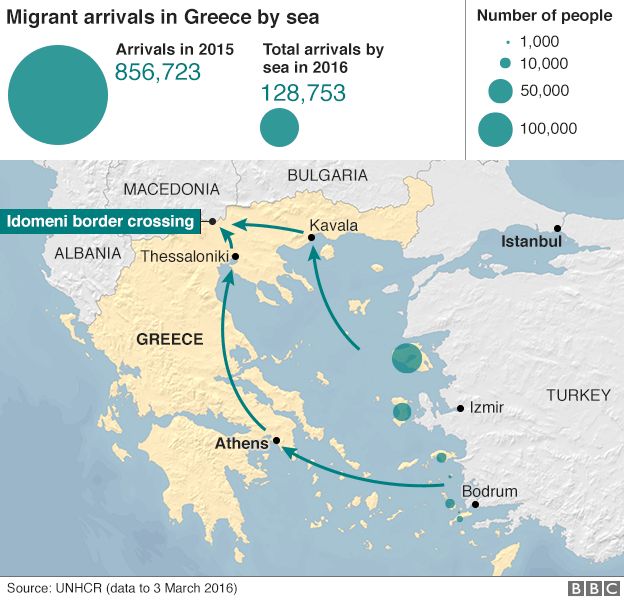
The union may now overhaul its Dublin Regulation, which requires asylum seekers to lodge claims in their EU country of arrival, and instead adopt a centralised system for processing applications.
EU leaders were also expected to raise the issue of the Zaman newspaper. On Friday, a Turkish court ordered the seizure of the opposition journal, increasing fears for media freedom. Two days later it was publishing pro-government articles.
‘All we do is sleep’
More than 2,000 migrants, mostly from Syria, Iraq and Afghanistan, continue to arrive daily in Greece from Turkey.
The Idomeni crossing on the Greece-Macedonia border has become the latest focus of the migrant crisis.
One camp resident, Syrian refugee Narjes al Shalaby, told AP news agency: “All we do here is sleep, wake up, sleep,” she said. “We get hungry, we wait in the queue for two hours for a sandwich, we come back, we sleep some more.”
Separately, Nato says it is expanding its naval mission against people-smuggling in the Aegean Sea to cover Turkish and Greek territorial waters.
EU Commission spokesperson for migration Natasha Bertaud told the BBC all migrants rescued in Greek waters would be taken to a Greek island and screened.
All economic migrants would then be returned to Turkey to be screened again and “if they have no right to international protection” sent back to their country of origin.
All migrants rescued by Nato in Turkish waters would be taken back to Turkey.
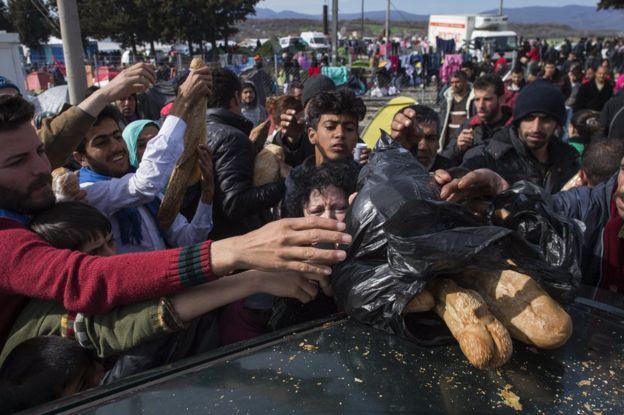
Volunteers supply migrants with bread near the Idomeni crossing in northern Greece
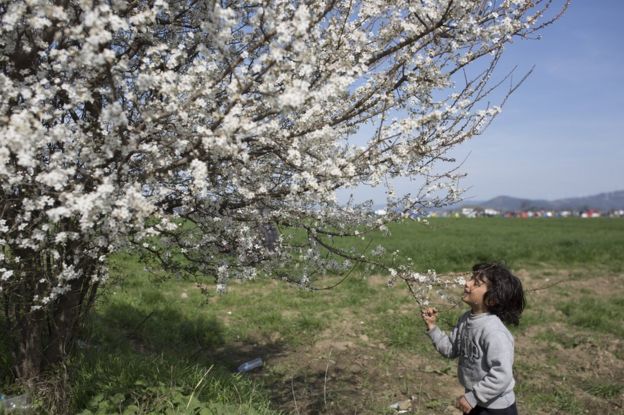
This little migrant girl was enjoying blossoms on a tree near Idomeni on Sunday
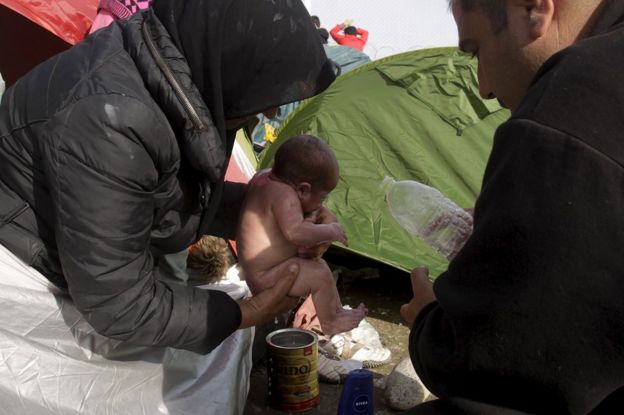
One migrant couple were washing their newborn baby with water from a bottle among the tents
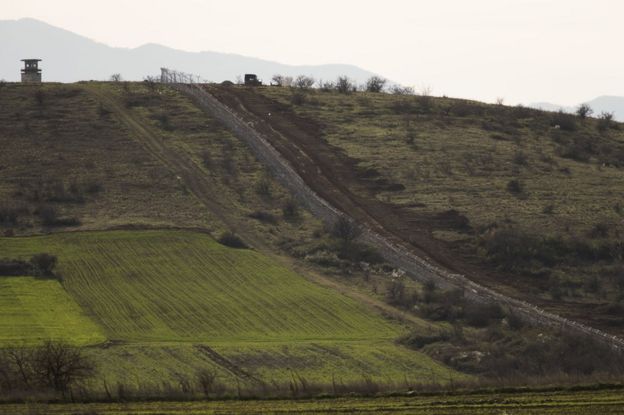
Macedonia has secured its border with wire fences and watchtowers
BBC
 Q FM Africa's Modern Radio
Q FM Africa's Modern Radio